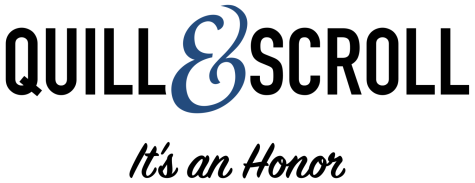The Weekly Scroll for Friday, Sept. 8, 2017
News, tips and advice from the Quill and Scroll International Honor Society.
Compiled and written by Marni Wax, Allison Wunder and Emily LaGrange.
The Lede:
#GirlBoss
In this day and age, nothing is more important than freedom of expression, especially in the opinionated generation many of us belong to. Someone who emcompasses this is Hadar Harris, a human rights attorney and non-profit leader with a passion for working with and on behalf of students. She became the new executive director of the Student Press Law Center, on Sept. 6.
For further exploration…
Here’s a podcast of Hadar speaking with former SPLC Executive Director Frank LoMonte about her future plans for the organization, showing just how she will enrich the learning of the general public.
It’s an honor:
Wildfires, Hurricanes, and Floods…OH MY!
Environmental journalist Michael Kodas sits down with Quill and Scroll to talk about his new book and what student journalists can do to cover the environment in their schools and in their communities. Click here to see how to cover the wildfires that are ravaging the American West, and the hurricanes that are pounding the South.
What’s it like to be a part of something bigger than yourself?
Go to our Facebook page to learn how to share your testimony about what it means to be a member of Quill and Scroll.
What’s Viral:
Journalist gone humanitarian
When Hurricane Harvey started dumping inconceivable amounts of water on his hometown, Shea Serrano, a Houston-based staff writer for Bill Simmons’ sports and pop culture website The Ringer, knew he should do something. And what’s the easiest way to reach a large amount of people? Well…he tapped into his network and turned to Twitter. Look at the remarkable amounts of money he raised overnight.
When something gets tough, work harder
Journalists covering the racial violence in Charlottesville faced challenges as they chose the appropriate words, images and sounds to express the emotions surrounding the attacks. This is not a time to shy away from the dangerous reality of hate, and it is not a time to glorify hate groups either. As the story unfolds about Charlottesville and the hard-working journalists on the ground covering it, the Poynter Institute offers this advice.
Just a Thought:
It’s just “fake news”!
The fake news phenomenon led to obsessive fact-checking in 2016. Now academia, with its slower publication process, is catching up. In the past few weeks, several studies with interesting findings for fact-checkers were published. Here are five of those studies that were deemed to be most important by Poynter.
It’s journalistic “Tool Time”
So, do it yourself references are culturally relevant at this point in time. And when it comes to digital tools…they are right at the front of the line. Let’s just get right to it and see how.
Put me in, Coach
An editor can be seen as a coach for a story. In writing, coaching means engaging the writer in an ongoing conversation about the story. This can be anywhere from the conception of the idea down to the final edit. The longer and more detailed the conversation, the less work you will have once the story is in the final stages. In this, you can learn from Poynter’s Vicki Krueger how to sharpen the idea and create an undoubtedly strong premise for a story.

